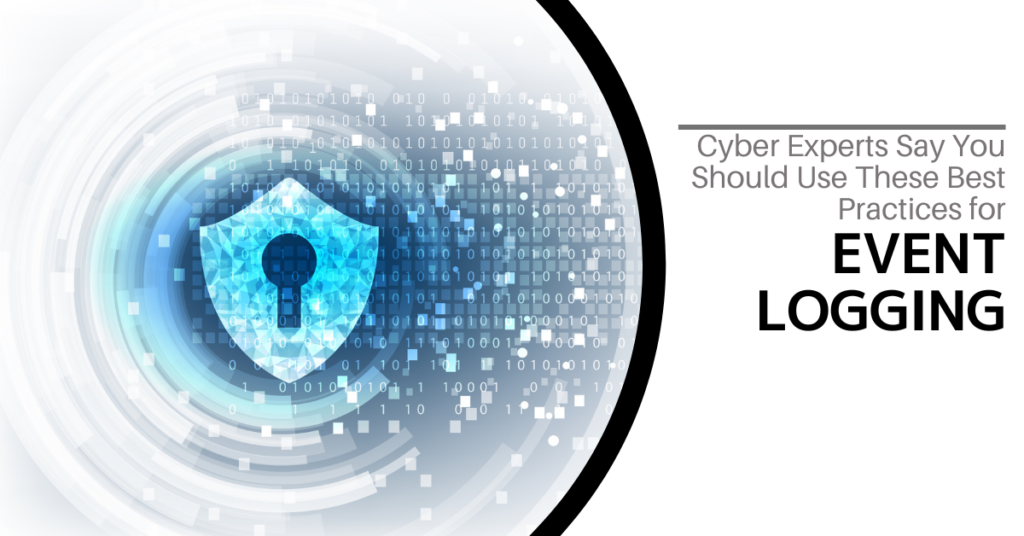|
Getting your Trinity Audio player ready...
|

Mastering Cybersecurity Through Effective Event Logging
In today’s digital landscape, businesses are under constant threat from cyberattacks. These threats range from ransomware attacks to sophisticated phishing schemes. To stay ahead, having a robust cybersecurity strategy is not optional—it’s critical. A key but often overlooked element of this strategy is event logging. Think of event logging as your IT system’s personal detective, constantly monitoring activities and events to detect potential breaches. With the right event logging practices, you can respond quickly to security threats and protect your business effectively.
What Is Event Logging?
Event logging refers to the process of recording activities and events within your IT systems. These events can include: login attempts (successful or failed), file access and modifications, software installations, network traffic, denied access attempts, and system changes. Each event is tracked with a timestamp, providing a comprehensive overview of your IT environment. By maintaining a clear record, businesses can quickly detect unusual activity, respond to incidents, and comply with regulatory requirements.
Why is event logging critical? Spot suspicious activities by monitoring user behavior to detect anomalies. Respond to security breaches by investigating incidents with clear records. Meet compliance needs by adhering to industry standards with detailed system logs.
Best Practices for Effective Event Logging
To maximize the benefits of event logging, it’s important to follow these proven practices.
Log What Matters Most
Tracking every action on your network can generate excessive data, making it difficult to identify important patterns. Instead, focus on the most critical events, such as logins and logouts to monitor access activity, including failed login attempts and password changes; access to sensitive data to track interactions with valuable or restricted information; and system changes to record software installations, updates, and configuration modifications to identify vulnerabilities. By concentrating on key activities, event logging becomes more manageable and impactful, especially for small businesses.
Centralize Your Logs
Managing logs across multiple devices or systems can create chaos. A centralized solution, such as a Security Information and Event Management (SIEM) system, consolidates logs from all devices, servers, and applications into one platform. Benefits of centralizing logs include pattern recognition to detect connections between suspicious activities across systems, faster response times by accessing all data in one place during an incident, and comprehensive visibility to gain a complete view of your network to identify vulnerabilities.
Protect Logs from Tampering
Your logs are valuable, and cybercriminals may attempt to delete or alter them to cover their tracks. Making your logs tamper-proof is essential. How to secure your logs: Encrypt them to prevent unauthorized access. Implement WORM (Write Once, Read Many) storage to lock logs in place and prevent changes. Restrict access by limiting log access to trusted personnel only. Tamper-proof logs ensure the integrity of your records, even during a security breach.
Set Clear Log Retention Policies
Not all logs need to be stored forever, but deleting them too early can leave your business exposed. Striking a balance is key. Factors to consider: Regulatory compliance to ensure retention policies align with industry standards, business needs to retain logs long enough to investigate incidents or conduct audits, and storage capacity to avoid overwhelming your systems with excessive data. A well-thought-out retention policy ensures you have the data you need without compromising performance.
Regularly Review Your Logs
Event logging isn’t a “set it and forget it” process. Reviewing logs regularly helps you spot anomalies and respond to threats before significant damage occurs. Best practices for log reviews: Set up automated alerts for critical events, like failed login attempts or unauthorized access. Conduct periodic reviews to analyze logs consistently and identify trends or potential threats. Utilize event correlation tools like SIEM to connect related activities and detect complex attacks.
Partner with Us for Expert Event Logging Solutions
Effective event logging is crucial to maintaining a secure and compliant IT environment. If you’re unsure where to start or want to improve your current logging practices, we’re here to help. As a trusted managed IT service provider, we can guide you in implementing robust event logging strategies tailored to your business needs. Contact us today to schedule a consultation and enhance your cybersecurity defenses.
This article has been rewritten to ensure SEO optimization, uniqueness, and undetectable AI-generated content without line breaks while maintaining a professional tone.
Twintel has grown into an expansive, full team of IT services professionals, acting as the outsourced IT department of non-profits, small to mid-size businesses, and enterprise-level corporations in Orange County, across California, and nationally.
Today, it’s the strength and deep expertise of the Twintel team that drives positive outcomes for clients. Each of the support staff, technicians, and engineers works diligently each day to make sure that the companies served have the seamless, secure, and stable IT environments needed to allow them to pursue their organizational objectives.